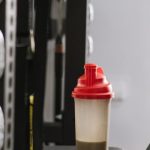What Are the Best Hydration Tips for Athletes in Training
Staying hydrated is crucial for athletes aiming to maximize their performance during training and competition. Proper hydration enhances endurance, reduces the risk of injury, and aids in recovery. However, many athletes overlook the importance of hydration strategies, leading to decreased performance and increased fatigue. Understanding how to effectively hydrate can make a significant difference in an athlete’s overall success.
Understanding Fluid Needs
Every athlete has unique hydration needs based on factors such as age, gender, body weight, and the intensity and duration of their training. Generally, a good baseline is to consume half your body weight in ounces of water daily. For example, if you weigh 160 pounds, aim for at least 80 ounces of water each day. However, this amount can fluctuate based on sweat loss during workouts, environmental conditions, and individual sweat rates.
During intense training sessions, athletes can lose a substantial amount of fluid through sweat. To assess hydration status, pay attention to the color of your urine. A pale straw color typically indicates adequate hydration, while dark yellow suggests a need for more fluids. Moreover, monitoring your weight before and after workouts can provide insights into how much fluid you lose during training, allowing you to adjust your intake accordingly.
Timing Your Hydration
When it comes to hydration, timing is everything. Aim to hydrate consistently throughout the day rather than waiting until you feel thirsty. This approach ensures that your body has the necessary fluids for optimal performance. A good strategy is to drink water during meals and include water breaks during training sessions.
For prolonged workouts lasting over an hour, consider consuming a sports drink that provides not only fluids but also electrolytes. These drinks can help replenish sodium, potassium, and magnesium lost through sweat. Ideally, start hydrating before your training begins. Consuming 16 to 20 ounces of water two to three hours prior to exercise prepares your body for the physical demands ahead.
Choosing the Right Fluids
While water is essential, athletes should also consider other beverages to enhance their hydration strategy. Sports drinks, coconut water, and electrolyte-infused waters can provide the necessary nutrients that plain water lacks. These drinks often contain carbohydrates, which can help sustain energy levels during extended workouts.
Coffee and tea can also be part of an athlete’s hydration plan. They provide hydration and may offer performance benefits due to their caffeine content. However, be cautious with caffeinated beverages, as excessive amounts can lead to dehydration. Aim for moderation and balance by pairing coffee or tea with water.
Post-Training Hydration
Post-exercise hydration is as important as pre-training hydration. After a workout, your body needs to replenish lost fluids and electrolytes to aid recovery. Consuming water along with a combination of carbohydrates and protein within 30 minutes after training can optimize recovery. A smoothie, a recovery drink, or even a balanced meal can serve this purpose effectively.
Moreover, consider incorporating foods with high water content into your diet. Fruits like watermelon, oranges, and strawberries, as well as vegetables such as cucumbers and spinach, can contribute to your overall hydration. These nutrient-rich foods not only provide hydration but also essential vitamins and minerals that support optimal performance.
Tailoring Hydration Strategies
Every athlete must develop a personalized hydration plan that considers their specific needs. Experiment with different hydration methods during training to identify what works best for you. Factors such as workout intensity, duration, and personal preferences will influence your hydration strategy.
Keep a hydration log to track your fluid intake and monitor how it affects your performance. This practice can help you identify patterns, allowing for more informed adjustments. Consulting with a sports nutritionist can also provide tailored advice for achieving optimal hydration based on your training regimen.
Fine-Tuning Your Hydration Strategy
Effective hydration is a cornerstone of athletic performance. By understanding your unique hydration needs, timing your fluid intake, choosing the right beverages, and focusing on post-training recovery, you can enhance your training outcomes. Remember that hydration is not just about drinking water; it encompasses a holistic approach that includes nutrition and personal experimentation. Striving for excellent hydration can propel you toward your athletic goals, ensuring that you perform at your peak every time.


